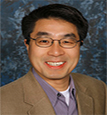Plenary and Keynote Lecture
HOME > Scientific Program >Plenary and Keynote Lecture
• KPMI Plenary Lecture
-
-
Z. Zak FANG
The University of Utah, Salt Lake City, Utah, USA - Title : Coarsening, Densification, and Grain Growth during Sintering of Nano-sized Powders – A Perspective
-
Z. Zak FANG
Zhigang Zak Fang, Professor, University of Utah, is a world-renowned expert in the cemented carbides and titanium industries. He joined the faculty of metallurgical engineering at the University of Utah in 2002. Prior to that, Prof. Fang had a successful industrial R&D career and held various technical and management positions in a number of industrial corporations. With a rich industrial experience, he developed expertise in a wide range of materials including hardmetals, polycrystalline diamond, powder metallurgy, titanium metallurgy, hydrogen storage materials, fracture-mechanical behavior of brittle materials, wear resistant materials, and other advanced materials processing technologies. From 2002 to date, Prof Fang has developed externally funded research programs in the areas of nano powder systhesis, nano sintering, functionally graded hardmetals, powder metallurgy titanium, intermetallic coatings, and metal hydrides materials for hydrogen storage and thermal energy storage. Prof. Fang graduated from the University of Science and Technology Beijing with BS and MS degrees in 1984 and received his Ph.D degree in materials science and engineering in 1991 from the University of Alabama at Birmingham. Prof. Fang has authored/co-authored over 120 peer reviewed publications. He is also the named sole or co-inventor in over 40 US patents. He is the current Editor-in-Chief of the International Journal of Refractory Metals and Hard Materials. He serves as a member of the International Journal of Powder Metallurgy Editorial Review Committee
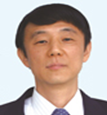
-
-
Prof. Hikaru Kobayashi
Institute of Scientific and Industrial Research, Osaka University - Title: ~20% efficiency black Si solar cells fabricated by the SSCT method with simple structure
-
Prof. Hikaru Kobayashi
1984. 3 Graduation of Ph. D Course of Faculty of Science, Kyoto University
1984. 4 ~ 1986. 3 Research Associate, Department of Physics, University of Pennsylvania
1986. 4 ~ 1987. 1 Researcher, Matsushita Electronic Corporation
1987. 1 ~ 1990. 7 Research Associate, Faculty of Engineering Science, Osaka University
1990. 7 ~ 1998. 7 Associate Professor, Faculty of Engineering Science, Osaka University
1998. 7 ~ present Professor, Institute of Scientific and Industrial Research, Osaka University
2004. 1 ~ present Editor-in-Chief of Applied Surface Science
1984. 4 ~ 1986. 3 Research Associate, Department of Physics, University of Pennsylvania
1986. 4 ~ 1987. 1 Researcher, Matsushita Electronic Corporation
1987. 1 ~ 1990. 7 Research Associate, Faculty of Engineering Science, Osaka University
1990. 7 ~ 1998. 7 Associate Professor, Faculty of Engineering Science, Osaka University
1998. 7 ~ present Professor, Institute of Scientific and Industrial Research, Osaka University
2004. 1 ~ present Editor-in-Chief of Applied Surface Science
• Plenary Lecture
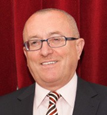
-
-
Prof. Dr. Ján Dusza, DrSc
Head of the Centre of Excellence for Nanostructured Materials and member of the Presidium of Slovak Academy of Science, Slovak Republic - Title : Nano-mechanical characterization of advanced ceramics
-
Prof. Dr. Ján Dusza, DrSc
Prof. Ján Dusza received his PhD and DrSc degree in the field of physical metallurgy from Technical university in Kosice, Slovak Republic.
Since 2003 he is professor and head of the Department of Structural Ceramics, IMR of Slovac Academy of Science. His research interests is; microstructure and mechanical properties of hardmetals,
ceramics, ceramic matrix composites, nano-composites, layered composites and coatings; High temperature characteristics of brittle materials / creep, slow crack growth, oxidation, etc;
Fractographic failure analysis of brittle materials. He is a member of the World Academy of Ceramics, European Structural Integrity Society (ESIS), Hungarian Academy of Sciences,
Slovak Learn Society of SAS. His awards include; Alexander von Humboldt Fellowship, Award of the BMFT from Germany, University of London QMW College EC fellowship, Lisa Meitner
fellowship at University of Vienna, Japan Fine Ceramics Centrum JSPS fellowship, EC grant, JRC, IAM Petten, The Netherland, Hertha Filnberg fellowship, Austrian Research Center Seibersdorf,
Seibersdorf, etc. He was/is in a consortium of eight EC 5 th -7th FP Projects. He was the chairman of a number of international
conferences and is the founding chair of the conference „Fractography of Advanced Ceramics“. He was/is a visiting professor at a number of universities in Europe.
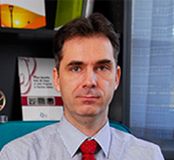
-
-
Akos HORVATH
Center for Energy Research, Hungary - Title: Radiation damage studies in the Budapest Neutron Centre
-
Akos HORVATH

-
-
Prof. Suk-Joong L. Kang
Korea Institute of Ceramic Engineering and Technology, Korea - Title: Tailoring Microstructure: an Enduring Challenge in Materials Science and Engineering
-
Prof. Suk-Joong L. Kang
Suk-Joong L. Kang is President of the Korea Institute of Ceramic Engineering and Technology (KICET). Before joining KICET in 2015, he was a Distinguished Professor in the Department of Materials Science and Engineering at the Korea Advanced Institute of Science and Technology (KAIST). He received a Dr.-Ing degree from the Ecole Centrale de Paris (1980), and a Dr. d’ Etat degree from the University of Paris VI (1985). After joining KAIST in 1980, he also served as a Visiting Professor at the Stuttgart Max-Plank-Institut, at Samsung Electromechanics, at the University of New South Wales , and at the University of Tokyo.
Dr. Kang has published more than 260 papers on sintering and microstructural evolution in ceramics and metals. During the past 15 years, he has presented over 90 invited talks at international conferences and symposia. He is the author of the text Sintering: Densification, Grain Growth and Microstructure, published in 2005. He developed the “Pore Filling Theory” of liquid phase sintering. Since the late 1990’s, Dr. Kang has particularly contributed to the understanding of microstructural evolution by structural transition and defect formation at interfaces. He introduced the concept of the mixed control of boundary migration, and deduced the principle of microstructural evolution. Dr. Kang is a fellow of the American Ceramic Society and a member of the World Academy of Ceramics. He also served as President of the Korean Powder Metallurgy Institute (’06), the Korean Ceramic Society (’12), and the Asia-Oceania Ceramic Federation (’13-’14), and as Editor-in-Chief of the Journal of Asian Ceramic Societies (’13-’15). He is the recipient the Sosman Award from the American Ceramic Society (’11), the Richard Brook Award from the European Ceramic Society (’15), the Helmholtz International Fellow Award (’15), the Inchon Prize from the Inchon Memorial Foundation (’07), and the Korea Engineering Prize from the President of the Republic of Korea (’10).
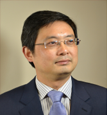
-
-
Prof. Guoxiu Wang
Director of the Centre for Clean Energy Technology and a Distinguished Professor at University of Technology Sydney (UTS) - Title: Advanced functional materials for energy storage and conversion
-
Prof. Guoxiu Wang
Professor Guoxiu Wang is the Director of the Centre for Clean Energy Technology and a Distinguished Professor at University of Technology Sydney (UTS), Australia. He currently holds an ARC Professorial Future Fellowship. Professor Wang is an expert in materials chemistry, electrochemistry, energy storage and conversion, and battery technologies. His research interests include lithium-ion batteries, lithium-air batteries, sodium-ion batteries, lithium-sulfur batteries, supercapacitors, hydrogen storage materials, fuel-cells, graphene, and chemical functionalisation of graphene. Professor Wang has published more than 360 refereed journal papers with an h-index of 60. His publications have attracted over 13,000 citations (Web of Science).
• Keynote Lecture

-
-
Dr. Ma Qian
Royal Melbourne Institute of Technology University - Title: Additive manufacturing of titanium alloys by selective laser melting (SLM) and selective electron beam melting (SEBM): recent fundamental developments
-
Dr. Ma Qian
Dr Ma Qian is Professor and Deputy Director of RMIT Centre for Additive Manufacturing, Royal Melbourne Institute of Technology (RMIT University), and Honorary Professor of The University of Queensland, Brisbane Australia. He received all of his degrees from the University of Science and Technology Beijing and worked subsequently as a postdoctoral researcher, lecturer and associate professor at Tsinghua University Beijing (1991-1994) and then as a researcher or a faculty member at several institutions including Kyushu Institute of Technology, National University of Singapore, The University of Queensland, Brunel University and the University of Portsmouth.
His current major research interests include metal additive manufacturing (AM), powder metallurgy (Ti and Al), solidification (nucleation and grain refinement) and nanoporous metals (dealloying). With his collaborators and team members he has contributed fundamentally to several aspects of these areas. These include (i) massive and martensitic transformations and their impact on the AM of strong and ductile Ti-6Al-4V (Acta Mater 2016:104;303-311; 2015:85;74-84); (ii) the Interdependence Theory for alloy solidification (Acta Mater 2010:58;3262-3270; 2011:59;4907–4921); (iii) the mechanisms behind the critical oxygen content (0.33wt.%) in PM Ti-6Al-4V (Acta Mater 2014:68;196–206); (iv) the rationales for sintering of Al alloys in nitrogen (Acta Mater, 2010:58;5667-5674), (v) heterogeneous nucleation on spherical substrates and their application to Mg alloys (Acta Mater, 2007:55;943-953; 2006:54;2241-2252; J. Chem.
Phys. 2009:;214709);and(vi)non-linearcapillaryshapeevolutionofcylindricalphasesviasurfacediffusion(ActaMater1998:46;1669-1681; 1994:42;4083-4086; 1994:42;4087-4091).
He has published more than 160 refereed journal papers with about 3000 Scopus citations. He is an Advisory Editor of Elsevier on Powder Materials and Solidification. In addition, he currently serves on the editorial or advisory boards of Metallurgical and Materials Transactions A, JOM, Powder Metallurgy, International Journal of Powder Metallurgy, Acta Metallurgica Sinica, Journal of Korean Powder Metallurgy Institute etc. Together with Professor F. H. Froes, he led the recent Elsevier project on Titanium Powder Metallurgy: Science, Technology and Applications (M.Qian, F. H. Froes), Elsevier, 2015, 628 pages.
Website: http://www.rmit.edu.au/contact/staff-contacts/academic-staff/q/qian-dr-ma/

-
-
Prof. Jai-Sung Lee
Hanyang University-ERICA Campus Department of Metallurgy and Materials Science Korea - Title: Powder Injection Molding of Multi-modal Type Nanopowder
-
Prof. Jai-Sung Lee
Jai-Sung Lee received his Ph.D. in Materials Science at the University of Stuttgart in 1983 when working at Powder Metallurgy Laboratory of the Max-Planck Institute for Metal Research with Prof. Guenter Petzow. Since 1983 he is Professor of Hanyang University-ERICA Campus and served as Dean and Director of ERICA. His research interests are in processing of metal nanopowders, design of nanopowder feedstock for 3D net-shaping process and grain boundary diffusion in nanoparticulate materials. He has published more than 250 journal papers and 200 proceedings, edited five books and holds more than 25 patents. He has presented a number of plenary & keynote lectures in the international conferences as well as the overseas research institutions. Prof. Lee received several national and international awards for their achievements. He is currently full member of the National Academy of Engineering of Korea. And he is a fellow of the Alexander von Humboldt Foundation since 1986 and was a Humboldt ambassador scientist and President of Humboldt-Club Korea. He was also President of the Korean Powder Metallurgy Institute (2007) and Director of Board of the Korean Research Council of Fundamental Science & Technology (2006-2009) and the Asian Powder Metallurgy Association. He was also Advisory professor to Samsung Electro-mechanics, R&D and Samsung Corning Ltd. He is presently Chief Review Board of Materials Division of National Research Foundation in Korea and is a leader of the planning committee for National 3D Printing R&D Roadmap. Prof. Lee is Vice President of Hanyang University ERICA campus.

-
-
Prof. Dayang WANG
School of Civil, Environmental, and Chemical Engineering RMIT University
-
Prof. Dayang WANG
Education:
- ·1998, Ph. D. Department of Chemistry, Jilin University, China.
- ·1993, B. Eng. Departmentof Chemistry, Jilin University, China.
- ·07, 2015–now, Professor, School of Civil, Environmental, and Chemical Engineering, RMIT University, Melbourne, Australia
- ·07, 2010–06, 2015, Research Professor, Ian Wark Research Institute (The Wark), University of South Australia, Adelaide, Australia.
- ·07, 2003–06, 2010,Group leader, Max-‐Planck Institute of Colloids and Interfaces, Potsdam, Germany.
- ·10, 1999–06, 2003, Postdoc, Max-‐Planck Institute of Colloids and Interfaces, Potsdam, Germany.
- ·01, 1999–09, 1999, Postdoc, Department of Mechanical Engineering, Hong Kong University of Science and Technology, Hong Kong.
- ·11, 2000–03, 2002, the Alexander von Humboldt Research Fellow, Max-‐Planck Institute of Colloids and Interfaces, Potsdam, Germany.
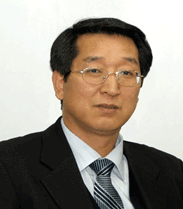
-
-
Dr. Yong Hwan Jeong
Korea Atomic Energy Research Institute - Title : R&D on Nuclear Materials for Nuclear Power Plants in Korea
-
Dr. Yong Hwan Jeong
Present Position
- Vice President, Nuclear Material Technologies Development, KAERI
- Has been working for KAERI since 1985 on the R&D of nuclear material and fuel material
- Chair of PRIMA-NET which is Network of Expert group related to material aging in Korea
- About 150 papers SCI-Journal Publications
- About 100 patents
- 2014-present : Vice President, Nuclear Materials Technology Development at KAERI
- 2011-2013: Director, Nuclear Materials Division at KAERI
- 2008-2010 : Director, Nuclear Technology Convergence Division at KAERI
- 2006-2007: LAB Leader, Advanced Core Materials LAB at KAERI
- 1995-2005: Principal Researcher at KAERI, Korea
- 1994-1995: Visiting Researcher at AECL, Canada
- 1991-1993: IAEA Fellow at SIEMENS/KWU, Germany
- 1985-1992: Senior Researcher at KAERI, Korea
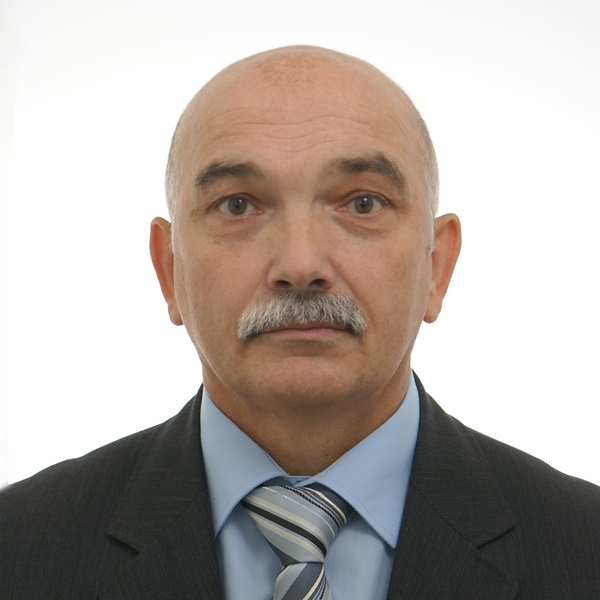
-
-
Prof. Pawel Zieba
Polish Academy of Sciences - Title: Discontinuous reactions-last decade: redivivus
-
Prof. Pawel Zieba
Pawel Zieba (born 1956) is the head of the Institute of Metallurgy and Materials Science of the Polish Academy of Sciences. His PhD and DSc he obtained at the Polish Academy of Sciences in 1987 and 1997, respectively. Since 2003 he is professor with the scientific title received from the President of Republic of Poland. In 1991-92 he was British Council Fellow at Manchester Materials Science Centre and then in 1997-2001 Alexander von Humboldt Foundation at Max-Planck Institute für Metallforschung and Institut für Metallkunde der Stuttgart Universität. Between 2003-2011 he was General Secretary of the Polish Society for Materials Science. Since 2011 he is member of Executive Committee of European Federation of Materials Societies and Editor in Chief of Archives of Metallurgy and Materials. He is author more than 250 papers which were published in the field of modern methods of materials characterization including electron microscopy, mass and charge transport at grain boundaries of metallic and ceramic materials, interconnection and joining of materials and renewable energy sources like silicon solar cells.
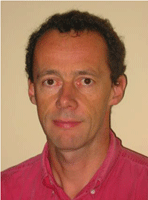
-
-
Prof. Jean-Michel Missiaen
Materials Science and Engineering, Grenoble INP PHELMA, Laboratoire SIMAP - Title: Sintering mechanisms of Cu-Cr metallic composites
-
Prof. Jean-Michel Missiaen
Education
- PhD in Process Engineering, ENS des Mines de Saint-Etienne, 1989
- Master in Process Engineering, ENS des Mines de Saint-Etienne, 1986
- Engineering degree in Materials Science & Engineering, ENSI de Caen, 1985
- 2011 – : Professor in Materials Science & Engineering Grenoble Institut Polytechnique (Grenoble INP) Ecole Nationale Supérieure de Physique, Electronique et Matériaux (PHELMA)
- 1991 - 2011 : Associate Professor in Materials Science & Engineering Grenoble Institut Polytechnique (Grenoble INP) Ecole Nationale Supérieure d’Electrochimie et d’Electrométallurgie de Grenoble (ENSEEG)
- 1989-1991 : Research Scientist in Powder Process Engineering ENS des Mines de Saint-Etienne
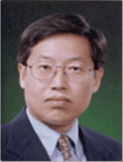
-
-
Prof. Soon Hyung Hong
Korea Advanced Institute of Science and Technology - Title: Fabrication Processes and Applications of Multi-functional Nanocomposites
-
Prof. Soon Hyung Hong
Dr. Hong joined the Korea Advanced Institute of Science and Technology (KAIST) as a professor in 1986, where he has carried out researches on composite materials. Dr. Hong had worked as a research associate at Stanford University after receiving Ph.D. in Materials Science and Engineering at Northwestern University in 1984. He had served as the Managing Director at the Office of Strategic R&D Planning (OSP) and the Director for Basic Research in Science and Engineering at National Research Foundation (NRF), and the Presidents of Korean Society for Composite Materials (KSCM) and Korean Powder Metallurgy Institute (KPMI). Prof. Hong presently serves as Vice President of the Society for Advancement of Materials and Process Engineering (SAMPE) in Korea. He is serving as editor-in-chief of Nano Convergence and editorial board members of Composite Science and Technology and NPG Asia Materials. Prof. Hong is currently members of the Korean Academy of Science and Technology (KAST) and the National Academy of Engineering of Korea (NAEK).
-
-
Prof. Jan Kazior
Krakow University of Technology - Title: Sintering of 17-4 PH stainless steel powder
-
Prof. Jan Kazior
Degrees
Faculty of Mechanical Engineering, Cracow University of Technology, Poland
- 1975 – M.Sc. Department of Metallurgy, AGH University of Science of Technology
- 1985 – Ph.D. Faculty of Mechanical Engineering, Cracow University of Technology
- 1994 – D.Sc. Faculty of Mechanical Engineering, Cracow University of Technology
- 2004 – Prof. Faculty of Mechanical Engineering, Cracow University of Technology
Faculty of Mechanical Engineering, Cracow University of Technology, Poland
- 1999 – present Professor
- 1996 – 2002 Vice-Head of Faculty of Mechanical Engineering, Cracow University of Technology
- 2002 – 2005 Vice-Rector of Cracow University of Technology
- 2006 – 2008 Head of Material Engineering Institute, Cracow University of Technology
- 2008 – present Vice-Rector of Cracow University of Technology
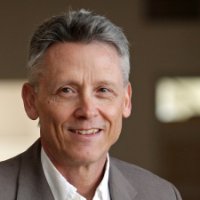
-
-
Dr. Alan J. Hurd
Los Alamos National Laboratory - Title: Closing the Materials Sustainability Loop
-
Dr. Alan J. Hurd
Alan Hurd is the Executive Advisory of Los Alamos National Laboratory, he was at Santa Fe Institute (2011-2012) on sabbatical as Visiting Scholar from Los Alamos National Laboratory. In 2012, he was Franklin Fellow at the Department of State as Office of Science and Technology Adviser to the Secretary.
Hurd is a physicist whose research interests include neutron scattering and complex fluids. He served on the APS-MRS study panel on energy critical elements. At SFI, he explores networks to describe the econophysics of mineral supply risk.
Hurd was President of the MRS in 2007. He received the 1999 Woody Award and the 2004 MRS Special Recognition Award. Currently he serves as vice chair of the MRS Government Affairs Committee.




